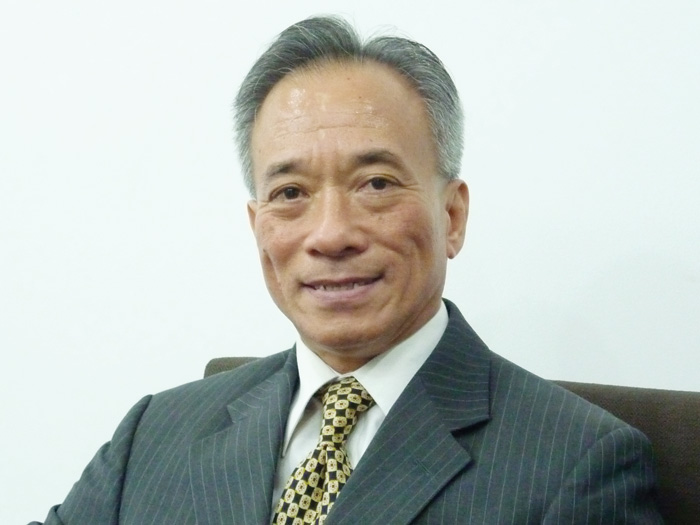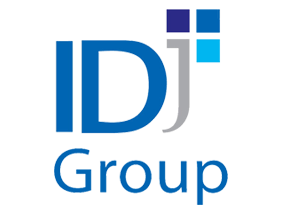The Fourth Industrial Revolution and technologies like the Internet of Things and Big Data are taking the world by storm. As Vietnam increasingly integrates into the global economy, their implications on the country’s development are inevitable. Nguyen Tri Hieu, economist, and the senior financial expert told VIR’s Dinh Thuy about Vietnam’s current standing and the challenges that might impede the country from reaping the benefits from these technologies to drive the local finance and banking sector’s development.

What is Vietnam’s current standing with regards to Industry 4.0 and how deep has technology penetrated into the country’s economy?
The Fourth Industrial Revolution is currently the buzzword across Vietnam, even though we have yet to finalize the 3.0 growth path. We still lag behind many countries in terms of economic development. However, we should not miss out on the global megatrend and position ourselves at the forefront of industrial development. This is a new era of irreversible development across the world, as well as for Vietnam.
In fact, the country has been on the 4.0 path for a few years now, particularly in the field of high-technology. However, in low-tech fields such as agriculture, textile clothing or real estate, we are behind many other countries. We must achieve the dual and parallel tasks of carrying out reforms aligning with the 3.0 growth path and initiating 4.0. The implications of disruptive technologies such as Big Data, automation or digitalization for global development are huge, and as such many locations in the world have been applying smart city models to bring a multitude of benefits to people. Thus, it is essential for us to push up Industry 4.0, which has the capacity to transform the whole economy.
To propel 4.0 development, we need to address the shortcomings by upgrading road, rail, waterway, and air infrastructure systems, and boosting production capacity and skills, as our current labor productivity is low in the ASEAN, only equal to that of Laos or Cambodia.
In the finance-banking segment, several banks have begun to apply new and advanced applications, such as new version of the core banking system, using QR codes or blockchain technologies, but the banking sector still mostly uses manual, low-grade and obsolete technologies that many banks purchased a decade ago. Obviously, that hinders the sector’s development. In fact, we still do not have in place a fully automated and digitalized branch that could operate without physical staff, as can be seen in many other countries.
Although the banking sector is ahead of other economic sectors in deploying state-of-the-art technologies, several banks are still using tech from 10 or 15 years ago, so it is a must for local banks to take breakthrough steps to spur development, through building modern IT infrastructure and using artificial-intelligent applications.
What are the challenges to the government’s target of building a cashless society?
The Vietnamese government is committed to building a cashless economy and requires support from the banking sector through the provision of non-cash payment methods. This approach is quite timely as shifting from cash-based to non-cash payments by people and businesses will accelerate economic development.
All banking applications, from connecting to payment portals to using e-wallets and using modern payment applications are necessary. In fact, many among the total 34 commercial banks use modern digital applications for payment purposes, while some other banks still apply conventional payment methods. Banks, therefore, need to accelerate efforts to fulfill the government’s commitment to build a cashless economy.
However, boosting people’s engagement in non-cash payment methods proves an arduous task as Vietnamese people have been using cash for years. However, it more than just a habit, as in fact, throughout our daily lives, such as taking a taxi, buying a bowl of noodles or paying for petrol, it seems there is no viable alternative to cash. It is a reality when you visit a rural area and go to a small hotel, you won’t get a room if you have no cash.
Look at other countries, such as China, where street vendors use QR codes to charge customers and even a beggar accepts donations via an app on the smartphone. Of course, Vietnam needs to do more to achieve, but we face barriers. Banks are willing, but the limited presence of payment processing or point of sale (POS) units at public places hinders overall efforts. POS units need to be installed at more service provision points. More retailers have to be willing to accept bank card, credit card, payment via QR code and e-wallet.
In light of a recent government instruction, by the end of this year, all hospitals and state-owned companies shall be required to only accept cashless payments from customers.
Ultimately, to build a cashless society, people need to change their cash-using habits. This is by no means simple as at present only 30 percent of Vietnamese people have bank accounts, while the remaining 70 percent, particularly those in rural and remote areas, are unbanked. That is also because it is very costly for banks to open branches or transaction offices in these areas, where customer deposits are limited and lending activity is low. Banks hesitate to open branches there where costs and expenses are not compensated by the low profits of banking services and activities.
Telecom giant Viettel was recently authorized by the government to open e-wallets, so people can put money on their e-wallets without opening bank accounts first. However, it is a question of great debate whether it is acceptable for people to open e-wallets at a non-bank company, and do not have any connection with banks.
Besides, it is important to have more and more POSs in place to serve customers, not only at big supermarkets, hotels, and airports, but also at retail stores in cities where diverse non-cash payment methods will be accepted, such as e-wallets, QR codes, and debit and credit cards. In fact, retail stores and street vendors still mostly accept only cash.
What is your assessment of the development of Fintech firms in Vietnam?
Fintech firms have made a strong presence in Vietnam in recent years, but there remain many constraints keeping them from bolstering Vietnam’s non-cash payment drive.
The two dominant payment methods in Vietnamese society at present are cash and bank transfer. Although Fintech firms have deployed diverse payment methods, their development might be impeded by legal hurdles, such as the current regulation requiring customers to be physically present with the necessary documents to set up a bank account. Further, only banks can open current account and accept the demand deposit.
Fintech firms are trying to deploy various biometric solutions to verify customers without having them physically present, but this has yet to be accepted by the central bank. This explains why Fintech firms, despite their growing presence in Vietnam, still hold a modest portion of the Vietnamese non-cash payment market. In addition, as the Vietnamese people’s average income remains too low, just over $2,500 per capita in 2018, it is likely that most people, such as workers at industrial zones, spend all their money on daily essentials, leaving no surplus on their bank accounts. It can be observed at many ATMs are on the payday when a worker withdraws all of his wages at once because his wage is barely enough to do the living in the next 30 days. And if there is no more money in his account, then it does not make sense to offer him any non-cash payment products because he will not use any way. Thus, to build a cashless economy and promote non-cash payments in society, people’s average incomes need to be raised to at least $5,000.
Fintech is very appealing to foreign investors as a slew of firms has been jumping into the field in the past years. Why do you think this is so?
In fact, Fintech firms have a strong presence across Asia, not only in Vietnam. Strong Fintech firms in China, Singapore, Malaysia or Indonesia have also entered Vietnam. However, in our country, their operations still remain limited despite their strong advances. One area in which they have been operating very effectively is peer-to-peer (P2P) lending.
Fintech firms have applications similar to ride-hailing firms Uber or Grab, helping to bridge people having money and those who want to borrow. This business is developing robustly in Vietnam, but it is closely related to illegal shark loan activities that are reaching an alarming level in Vietnam. The abrupt growth of shark loans has raised public concern, forcing the government to take action to curb the threat. Despite increasing efforts, Fintech firms’ contribution to the government’s target to build a cashless economy has been limited.
In a nutshell, we can expect that the government’s strong commitment and inclusive actions plan to target building a cashless society could be achieved in the not-too-distant future, with active engagement by people, businesses, and other stakeholders, including Fintech firms, helping to turn Vietnam into an affluent nation.
[content_block id=4039 slug=posts-footer]





